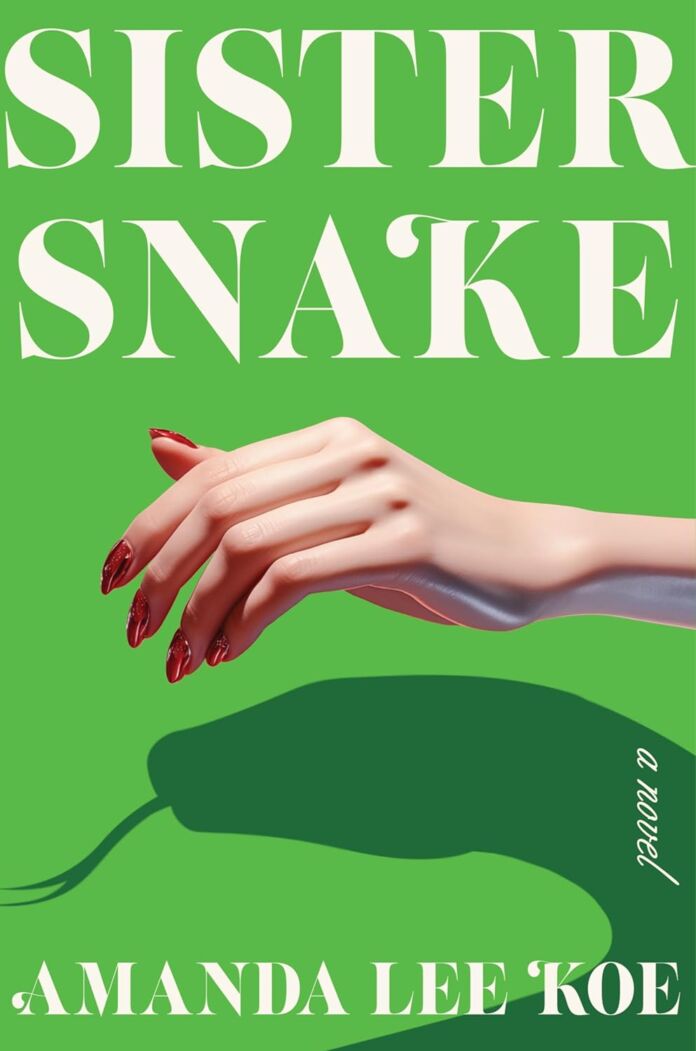In her second novel, Sister Snake, Amanda Lee Koe weaves an enchanting narrative that seamlessly blends ancient Chinese folklore with contemporary issues of identity, conformity, and sisterhood. Following her acclaimed debut “Delayed Rays of a Star,” Koe demonstrates her growing mastery of the craft, delivering a story that is both mythically grand and intimately personal.
Plot and Narrative Structure
The novel follows two immortal snake spirits-turned-humans: Su, living as a politician’s perfect wife in Singapore, and Emerald, surviving as a sugar baby in New York. Once inseparable sisters in Tang Dynasty China, they now lead vastly different lives, connected only by their shared secret. When Emerald faces a violent encounter in Central Park, Su rushes to New York, initiating a reunion that sets off a chain of transformative events.
A Tale of Two Cities
Koe masterfully contrasts the ordered affluence of Singapore with the chaotic freedom of New York. This juxtaposition serves as more than mere setting – it becomes a character in itself, reflecting the sisters’ divergent approaches to their immortal existence. The author’s intimate knowledge of both cities shines through in vivid, sensory descriptions that transport readers between worlds.
Themes and Symbolism
Identity and Transformation
The central metaphor of snakes shedding their skin becomes a powerful commentary on identity and transformation. Su’s desperate attempts to pass as human, contrasted with Emerald’s fluid acceptance of her dual nature, creates a compelling exploration of authenticity versus assimilation.
Freedom and Conformity
One of the novel’s greatest strengths lies in its nuanced examination of freedom. Through Su’s seemingly perfect life in Singapore and Emerald’s chaotic existence in New York, Koe challenges readers to question what true freedom means. Is it found in perfect conformity or complete rebellion?
Character Development
The Sisters’ Dynamic
The relationship between Su and Emerald forms the heart of the novel. Their bond is complex, marked by love, resentment, protection, and betrayal. Koe excels in portraying their contradictions:
- Su’s outward perfection masking inner turmoil
- Emerald’s apparent recklessness concealing deep wisdom
- Their mutual inability to fully separate despite decades of distance
Supporting Characters
The novel’s supporting cast is equally well-drawn, particularly:
- Tik, the Muslim security officer whose queerness adds another layer to the story’s exploration of identity
- Paul, Su’s politician husband, whose character arc reveals the price of power and conformity
- Bartek, Emerald’s artist friend, whose tragic fate catalyzes major plot developments
Writing Style and Craft
Koe’s prose is a testament to her growth as a writer. She moves effortlessly between:
- Lyrical descriptions of ancient China
- Sharp contemporary dialogue
- Intense action sequences
- Intimate character moments
However, some readers might find the pacing uneven, particularly in the middle section where multiple plotlines converge. The narrative occasionally becomes tangled in its own complexity, though it ultimately finds its way back to clarity.
Strengths and Achievements
- Cultural Integration: The novel masterfully incorporates Chinese mythology without exoticizing it
- LGBTQ+ Representation: Queer themes are woven naturally into the narrative
- Social Commentary: Sharp observations about class, power, and society in both Singapore and the US
- Character Depth: Complex, flawed characters that defy easy categorization
Areas for Improvement
- Pacing: Some sections, particularly in the middle, could be tightened
- Plot Complexity: Certain subplots feel underdeveloped or unnecessarily complicated
- Resolution: The ending, while powerful, might leave some readers wanting more closure
Impact and Relevance
Sister Snake arrives at a crucial moment in contemporary literature, when discussions about identity, belonging, and freedom are more relevant than ever. The novel’s exploration of these themes through a fantastical lens makes them more accessible and universal.
Comparison with Similar Works
The novel stands alongside works like:
- Yangsze Choo’s “The Ghost Bride” in its blend of Asian mythology and contemporary storytelling
- Carmen Maria Machado’s “Her Body and Other Parties” in its queer themes and magical realism
- Fonda Lee’s “Jade City” in its exploration of power and family in an Asian context
Final Verdict
Sister Snake is a remarkable achievement that succeeds on multiple levels. Despite some minor flaws, it represents a significant evolution in Koe’s writing and a valuable addition to contemporary fantasy literature. The novel offers readers a unique blend of ancient mythology and modern concerns, wrapped in gorgeous prose and compelling characterization.
Who Should Read This Book
- Fans of literary fantasy and magical realism
- Readers interested in LGBTQ+ themes and identity exploration
- Those who enjoy complex family dynamics
- Anyone interested in contemporary Asian literature
Who Might Want to Skip
- Readers who prefer straightforward, linear narratives
- Those uncomfortable with explicit content
- People looking for traditional fantasy with clear-cut heroes and villains
Conclusion
Amanda Lee Koe’s Sister Snake is a bold, ambitious novel that successfully marries ancient mythology with contemporary concerns. While it occasionally stumbles under the weight of its own ambitions, it ultimately delivers a powerful meditation on identity, freedom, and the bonds that both constrain and liberate us. It’s a worthy addition to any reader’s library and further establishes Koe as a significant voice in contemporary literature.





